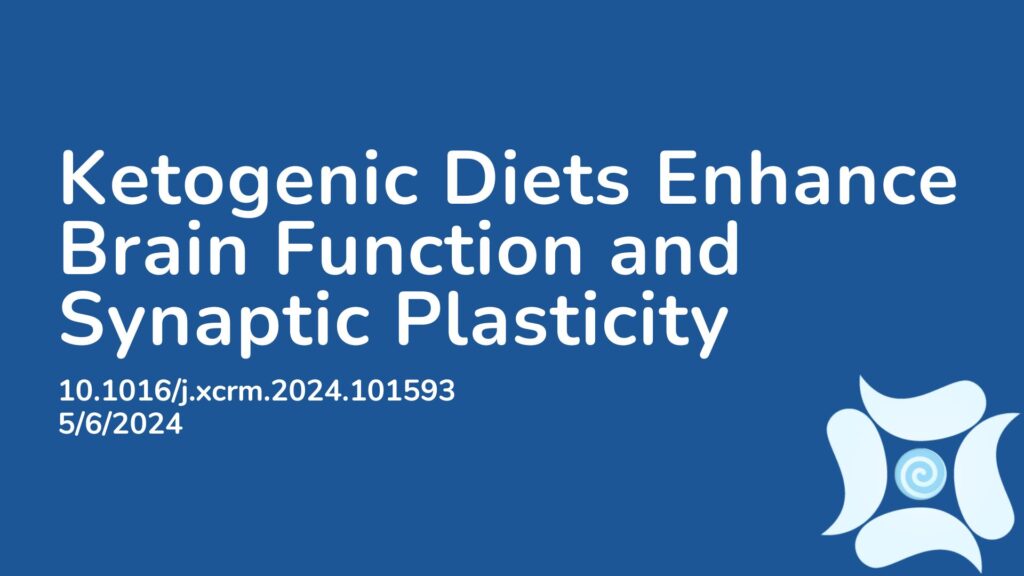Summary:
Age-related cognitive decline is due to various factors, such as genetics, environment, diet, and lifestyle. Recent studies show that certain diets, such as caloric restriction, intermittent fasting, and ketogenic diets (KDs), can improve learning and memory in aging mice. KDs, which are high-fat, low-carb diets, were originally studied for use in epilepsy. However, they have been shown to help older adults with mild cognitive decline and improve brain health and memory. The mechanism is thought to involve protecting the brain by reducing oxidative stress, boosting mitochondrial production, and preventing cell aging and inflammation. Ketone bodies from KDs have also been shown to reduce neuronal hyperactivity and clear amyloid plaques. Despite KD’s benefits, many questions remain about its mechanisms and long-term effects. This paper hypothesized that the KD reshapes neuronal networks in aged mice by regulating proteins involved in synaptic activity, enhancing long-term benefits and neurotransmission. Behavioral tests and brain recordings showed that the KD enhanced working memory and hippocampal function. Analysis of brain proteins also indicated changes in the presynaptic area linked to signaling pathways. These findings confirmed that the KD improves brain function by promoting synaptic plasticity, which refers to the connections between neurons. The strength of these connections were changed due to the KD, which is crucial for learning, memory, and overall brain function.
Abstract:
Aging compromises brain function leading to cognitive decline. A cyclic ketogenic diet (KD) improves memory in aged mice after long-term administration; however, short-term effects later in life and the molecular mechanisms that govern such changes remain unclear. Here, we explore the impact of a short-term KD treatment starting at elderly stage on brain function of aged mice. Behavioral testing and long-term potentiation (LTP) recordings reveal that KD improves working memory and hippocampal LTP. Furthermore, the synaptosome proteome of aged mice fed a KD long-term evidence changes predominantly at the presynaptic compartment associated to the protein kinase A (PKA) signaling pathway. These findings were corroborated in vivo by western blot analysis, with high BDNF abundance and PKA substrate phosphorylation. Overall, we show that a KD modifies brain function even when it is administered later in life and recapitulates molecular features of long-term administration, including the PKA signaling pathway, thus promoting synaptic plasticity at advanced age.
Article Publication Date: 5/6/2024
DOI: 10.1016/j.xcrm.2024.101593



